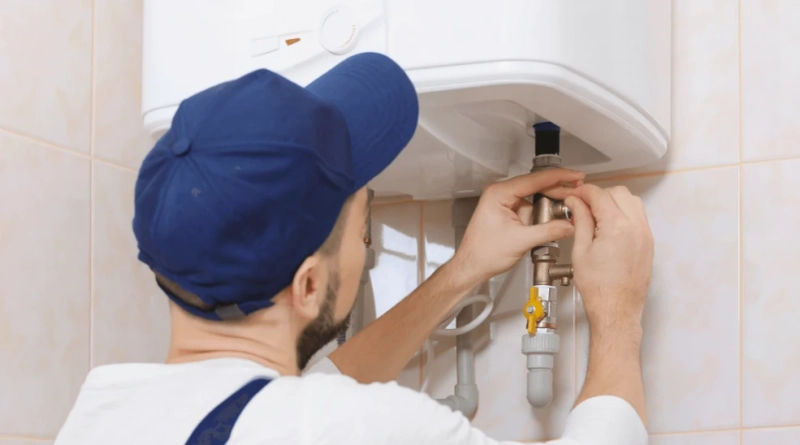Few things are as frustrating as stepping into a cold shower on a winter morning. Water heaters are essential to our daily lives, providing hot water for showers, laundry, dishwashing, and more. But like any appliance, they wear out over time. Knowing the signs of trouble and understanding when a water heater replacement is necessary can save you time, money, and discomfort. Let’s break down everything you need to know about repairing or replacing your water heater.
Common Signs Your Water Heater Needs Attention
Water heaters rarely fail without warning. Keep an eye out for these signs:
- Inconsistent Hot Water: If your hot water runs out quickly, something might be wrong with the heating element or thermostat.
- Strange Noises: Popping, banging, or rumbling sounds can mean sediment has built up inside the tank.
- Leaking Water: Any water around your unit could be a sign of tank corrosion or loose connections.
- Discolored Water: Rusty or brown water may indicate the inside of your heater is corroding.
- Age of the Heater: Most units last 8–12 years. If yours is older, consider planning for a water heater replacement.
Repair vs. Replacement: Which One Do You Need?
Sometimes, a simple fix is all you need. Other times, replacing your water heater is the better long-term option.
When Repair Makes Sense
- The issue is minor, like a faulty thermostat or heating element.
- The unit is less than 8 years old.
- Repairs are affordable and don’t compromise the safety or efficiency of the unit.
When Replacement is Smarter
- Frequent repairs are becoming common.
- The tank is leaking or heavily corroded.
- The heater is old and energy inefficient.
- You need a bigger unit to meet your family’s hot water demands.
If you’re facing multiple issues or high repair costs, it may be time to consider a water heater replacement for better performance and savings.
Types of Water Heaters to Consider
If replacement is on the table, it helps to know your options.
Tank Water Heaters
These traditional systems store hot water in a large tank. They’re affordable and simple to install but may not be energy-efficient.
Tankless Water Heaters
These heat water on demand, offering endless hot water and energy savings. While they cost more upfront, they usually last longer.
Hybrid Water Heaters
Also known as heat pump water heaters, these use electricity to move heat rather than generate it—making them one of the most energy-efficient options available.
Solar Water Heaters
Powered by the sun, these systems are eco-friendly and can reduce long-term energy costs. However, they come with a higher initial investment.
A professional plumber can help you decide which type fits your needs best during your water heater replacement.
Benefits of Replacing Your Water Heater
A water heater replacement might seem like a hassle, but it comes with long-term benefits:
- Improved Efficiency: Newer models use less energy, helping reduce utility bills.
- More Reliable Hot Water: No more sudden cold showers or long waits.
- Fewer Repairs: A new unit means fewer breakdowns and costly emergency fixes.
- Better Safety Features: Modern heaters include updated safety technologies.
- Increased Home Value: New appliances add value to your home, especially when selling.
Steps Involved in Replacing a Water Heater
Replacing a water heater isn’t just a plug-and-play job. Here’s what to expect:
- Inspection: A technician will check the current system and make sure the new one fits your home’s needs.
- Draining the Tank: The old tank is emptied to prevent leaks during removal.
- Disconnecting and Removal: The old unit is safely disconnected and taken out.
- Installation of New Unit: The new heater is installed, tested, and adjusted for efficiency.
- Clean-Up and Safety Check: The technician ensures everything is secure, clean, and up to code.
Always hire licensed professionals for your water heater replacement to avoid future issues and ensure warranty protection.
Maintenance Tips to Extend Lifespan
Even the best water heater needs regular care:
- Flush the Tank Annually: Removes sediment buildup that can damage the tank.
- Check the Anode Rod: Replace every 3–5 years to prevent rust.
- Insulate the Tank: Helps maintain water temperature and save energy.
- Adjust Thermostat: Keep the temperature around 120°F to reduce wear and energy use.
- Inspect for Leaks: Regularly check for signs of corrosion or dripping water.
With proper maintenance, you can delay the need for another water heater replacement down the road.
Frequently Asked Questions (FAQs)
Q1: How much does a water heater replacement cost?
A: Costs vary by type and size. Traditional tank models range from $600–$1,500 installed, while tankless units may cost $2,000 or more.
Q2: Can I replace my water heater myself?
A: It’s not recommended unless you’re experienced. Incorrect installation can lead to leaks, electrical issues, or even carbon monoxide risks.
Q3: How long do water heaters last?
A: Most units last 8–12 years. Tankless models can last up to 20 years with proper maintenance.
Q4: What size water heater do I need?
A: It depends on your household size. A 40-50 gallon tank suits most families of 3–4 people. Larger households may need bigger or multiple units.
Q5: Are energy-efficient models worth it?
A: Yes, energy-efficient heaters may cost more upfront but save significantly on monthly utility bills.
Conclusion: Know When It’s Time for a Change
If your water heater is old, unreliable, or constantly breaking down, don’t wait for a complete failure. Consider a timely water heater replacement to improve energy efficiency, comfort, and peace of mind. Regular inspections and proper maintenance can also help extend the life of your investment. Always rely on certified professionals to guide you in choosing and installing the right model for your home.


